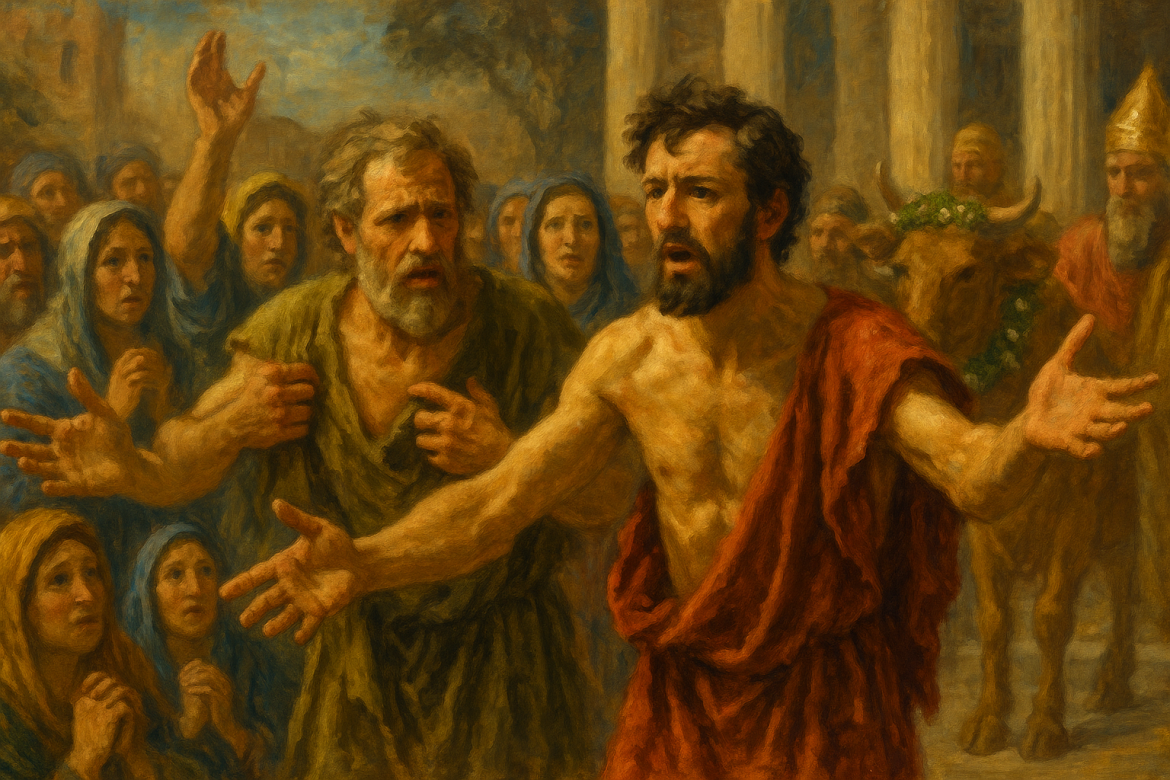In Acts 14, we witness the perseverance and dedication of Paul and Barnabas as they continue their mission to spread the message of Jesus Christ, despite facing significant opposition. Their journey begins in Iconium, where they preach in the synagogue, leading to many Jews and Greeks believing in their message. However, not everyone is convinced, and some Jews attempt to stir up trouble, trying to turn the people against them. Despite the hostility, Paul and Barnabas remain steadfast, boldly proclaiming the word of the Lord and performing signs and wonders to support their message.
The situation escalates as the apostles find themselves targeted for mistreatment and stoning by those opposed to their teachings. Foreseeing the danger, they flee to Lystra and Derbe, where their ministry continues. In Lystra, a significant miracle occurs when Paul heals a man who had been crippled from birth. The astonished crowd mistakenly believes Paul and Barnabas are gods—Zeus and Hermes—come to earth in human form, a belief rooted in local mythology. Despite their efforts to correct the crowd and redirect their praise to the one true God, the apostles find themselves facing an even greater challenge.
As Jews from Antioch and Iconium arrive, they incite the crowd to turn against Paul, leading to his brutal stoning. Believing him to be dead, his attackers drag him out of the city. Yet, Paul’s resilience shines through as he miraculously survives, gets up, and returns to the city to continue his mission.
The chapter concludes with Paul and Barnabas appointing elders in the new Christian communities, solidifying the foundation of the early Church. Their journey through these trials not only demonstrates their unwavering faith but also serves as a powerful example of persistence and dedication to spreading the gospel, regardless of the obstacles.

